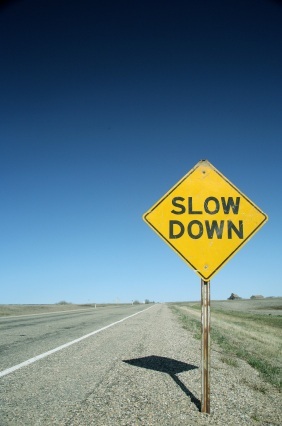 More observations on business and culture from an unofficial leadership anthropologist.
More observations on business and culture from an unofficial leadership anthropologist.
The lot of professionals inside many organizations can easily be characterized by a series of endless status meetings, hurried hallway conversations and messages quickly dispatched on a pda while walking, ignoring the meeting in process or consuming a protein bar on the run.
Space aliens observing from afar might get the sense of a hive type atmosphere with a seemingly endless amount of activity, but almost no perceived vector. Clearly people fawn over those with power, but the output of all of this fawning and excessive movement might not be visible to these distant observers. Nonetheless, work gets done, customers are served and growth often created. I do however, worry and wonder about the human costs and the cost to the organization in lost-ideas, missed opportunities and a much more superficial existence.
If you work in one of these fast-paced cultures, the issue of finding time to focus on people and strategic priorities is a true struggle. The problem is compounded if you get caught up in the common notion that success equates to being perceived by the right people as busy.
Beware the Micro-Transaction Trap:
I’ve noticed a tendency for some in hive type cultures to get caught up in achieving a maximum number of touches per day. The goal becomes one of earning attendance to meetings where you need to “be seen,” and minimizing the amount of time that you spend on any one topic. Deep thinking is not promoted, because you are too busy engaging in micro-transactions. These are quick sound-bite type engagements where surface topics are covered and conversations on deep issues forestalled for another time.
Another Way:
I contrast the micro-transaction or hive style culture with my own experiences working and partnering with a number of different U.S., Asian and European organizations, where thinking time is valued, and discussions are typically allowed to run a useful course…one not dictated by the next entry in an Outlook calendar.
While I cannot say conclusively whether these more deliberate organizations are more successful than their hive-like counterparts, they are all market leaders and they do well retaining and developing employees.
What I can say from personal observation and interaction is that this more deliberate style certainly seems more humane, more enjoyable and to me, one heck of a lot more productive on the right issues. Strategic issues are tackled, learning takes place and coaching and nurturing of talent is a focal point.
5 Reasons Why Lack of Focus Extracts a Toll Personally and Organizationally
1. Speed drains and kills. Constant movement and micro-transactions draw upon instinct and adrenaline. Survival is the goal, movement is required and it becomes habitual. There’s no deep processing going on in this constant sense and respond environment. Frankly, I want some deep thinkers on my team.
2. Excessive focus on pace squeezes out good leadership practices. A key to successful leadership is finding time to focus on others. While sometimes the army is engaged, and sense and respond are required for a period of time, eventually, there must be an opportunity rest, reflect, learn, plan and reset. An always on, micro-transaction culture is a formula that promotes leadership ineffectiveness and rapid troop burnout.
3. All activity, no vector equals poor or suboptimal results. A lot of activity and no vector is a huge waste of physical and mental energy. Strategy sets the vector, and unless this strategy is clear to all, the motion is for show, not for go or dough. Lack of focus extracts huge opportunity costs from an organization.
4. The criteria for getting ahead are off-key. If it’s required to be constantly visible to the people in power to succeed, frankly, the leadership is fatally flawed.
5. Unbridled speed accelerates mistakes. Speed is a powerful motivator and a false god. Speed creates waste and allows mistakes to run further faster. The effective use of speed is a different story. (I have a great podcast interview coming up with Jocelyn Davis, one of the co-authors of Strategic Speed, where this notion of effective speed is shared in detail.)
The Bottom-Line for Now:
Speed kills, and so does inaction compounded by over-analysis. There must be a happy medium or at least a workable balance of speed and activity with the slow, thoughtful dialogue that leads to new ideas, performance improvements and effective coaching. If you live and work in a hive type atmosphere, you’ve got a tough task, but one worth fighting for on a daily basis. Learn to slow down and focus at least once a day.
